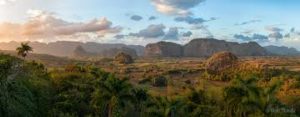BARBARITO DIEZ “LA VOZ DEL DANZÓN”, A CASI TRES DÉCADA DE SU PARTIDA. VIDEOS
Han pasado casi tres decadas que Barbarito Diez el también conocido como ‘La Voz del Danzón’ continúa despertando la curiosidad de investigadores, pasiones de los oyentes y recuerdos en quienes acompañaron su vida con las melodías de este tenor.
Con una voz capaz de poner los pelos de punta, una cubanía inconfundible y un ritmo envuelto en sensualidad, Barbarito Diez destaca hoy en las páginas de la historia de la música en la isla por su virtuosismo y maestría, a mas de un cuarto de siglo de su muerte el 6 de mayo de 1995.
La década del 30 del siglo pasado acunó el nacimiento de Diez como músico, quien sin formación académica legó interpretaciones que lo.posicionaron en la cima del gusto popular e inmortalizó temas clásicos del pentagrama internacional como Lágrimas negras, Olvido, Juramento, El que siembra su maíz, entre otras.
VIDEOS- BARBARITO DIEZ CANTA “LAGRIMAS NEGRAS”..
TALENTO Y DISTINCIÓN
Cantante de amplias facultades vocales, deleitó por 58 años a varias generaciones con piezas de Ernesto Lecuona, Moisés Simons, Eliseo Grenet, Pedro Flores, Rafael Hernández, Miguel Matamoros, entre varios destacados compositores de la nación caribeña.
Guitarras, pianos y tambores, acompañaron la voz inconfundible de Barbarito quien grabó gran número de discos de larga duración, ofreció su talento en diversos países y amenizó programas artísticos en cabarets, teatros, radio y televisión.
Diversas distinciones dan cuenta de su fecunda labor en aras del enriquecimiento cultural de nuestro pueblo, como el reconocimiento por la Cultura Nacional, las medallas Raúl Gómez García y Alejo Carpentier, la Orden Félix Varela de Primer Grado, así como otros galardones y trofeos, destaca Prensa Latina.
Diez aportó originalidad y vigor al danzón, reconocido como Baile Nacional de Cuba y creado por Miguel Faílde en el siglo XIX, con una base instrumental de piano, trompeta, clarinete, flauta, timbales, güiro y claves.
El destacado intelectual cubano Miguel Barnet catalogó a Barbarito como una brújula que apunta a la cubanía pues su voz, cual palo de monte, constituye la raíz de cuya savia se nutren los aires de la patria.
ULTIMOS ANOS DE BARBARITO DIEZ
En una de sus últimas entrevistas, Díez dejó un mensaje para su audiencia: “Quiero que todos sepan lo agradecido que estoy por el cariño, el respeto y la consideración que siempre me han brindado. Digo en voz alta que tengo la mayor emoción de ver que todavía escuchas con placer, así que cantaré hasta que me quede sin fuerzas para hacerlo”.
Barbarito Díez murió en 1995 por complicaciones relacionadas con la diabetes a los 85 años.
BARBARITO DIEZ “LA VOZ DEL DANZON”, ALMOST THREE DECADES AFTER HIS DEPARTURE. PHOTOS. VIDEOS
Almost three decades have passed since Barbarito Diez, also known as ‘La Voz del Danzón’, continues to arouse the curiosity of researchers, the passions of listeners and the memories of those who accompanied his life with the melodies of this tenor.
With a voice capable of making your hair stand on end, an unmistakable Cuban identity and a rhythm wrapped in sensuality, Barbarito Diez stands out today in the pages of the history of music on the island for his virtuosity and mastery, after more than a quarter of a century. of his death on May 6, 1995.
The decade of the 30s of the last century cradled the birth of Diez as a musician, who without academic training bequeathed interpretations that positioned him at the top of popular taste and immortalized classic songs from the international pentagram such as Lágrimas negras, Olvido, Juramento, El que sombra su corn, among others.
TALENT AND DISTINCTION
A singer with wide vocal faculties, he delighted several generations for 58 years with pieces by Ernesto Lecuona, Moisés Simons, Eliseo Grenet, Pedro Flores, Rafael Hernández, Miguel Matamoros, among several outstanding composers of the Caribbean nation.
Guitars, pianos and drums accompanied the unmistakable voice of Barbarito who recorded a large number of long-playing albums, offered his talent in various countries and enlivened artistic programs in cabarets, theaters, radio and television.
Various distinctions attest to his fruitful work for the cultural enrichment of our people, such as recognition by National Culture, the Raúl Gómez García and Alejo Carpentier medals, the First Degree Félix Varela Order, as well as other awards and trophies, highlights Latin Press.
Diez brought originality and vigor to the danzón, recognized as the National Dance of Cuba and created by Miguel Faílde in the 19th century, with an instrumental base of piano, trumpet, clarinet, flute, timbales, güiro and claves.
The prominent Cuban intellectual Miguel Barnet cataloged Barbarito as a compass that points to the Cuban identity, since his voice, like a bushwood, constitutes the root from whose sap the airs of the homeland are nourished.
LATE LIFE
In one of his last interviews, Díez left a message for his audience: “I want everyone to know how grateful I am for the love, respect and consideration they have always given me. I say out loud that I have the biggest thrill to see that you still listen with pleasure, so I will sing until I run out of strength to do it.”
Barbarito Díez died in 1995 from diabetes-related complications at age 85.
Agencies/ Wiki/ RHC/ Julio Pérez/ Extractos/ Excerpts/ Internet Photos/ YouTube/ Arnoldo Varona/ www.TheCubanHistory.com
THE CUBAN HISTORY, HOLLYWOOD.











